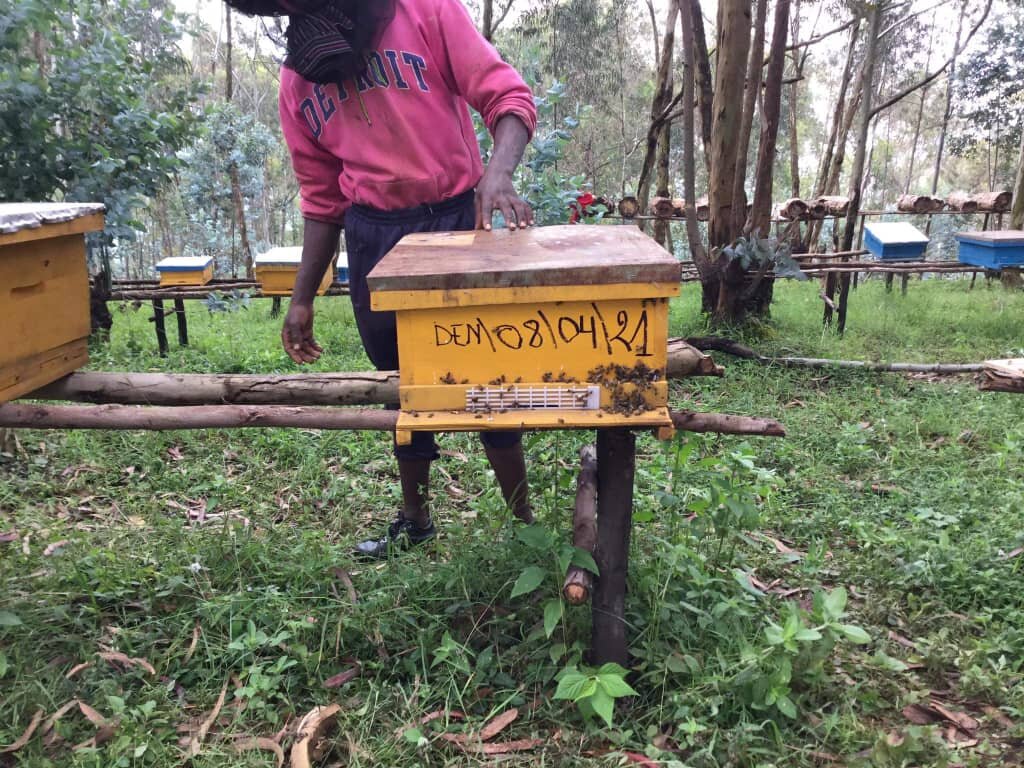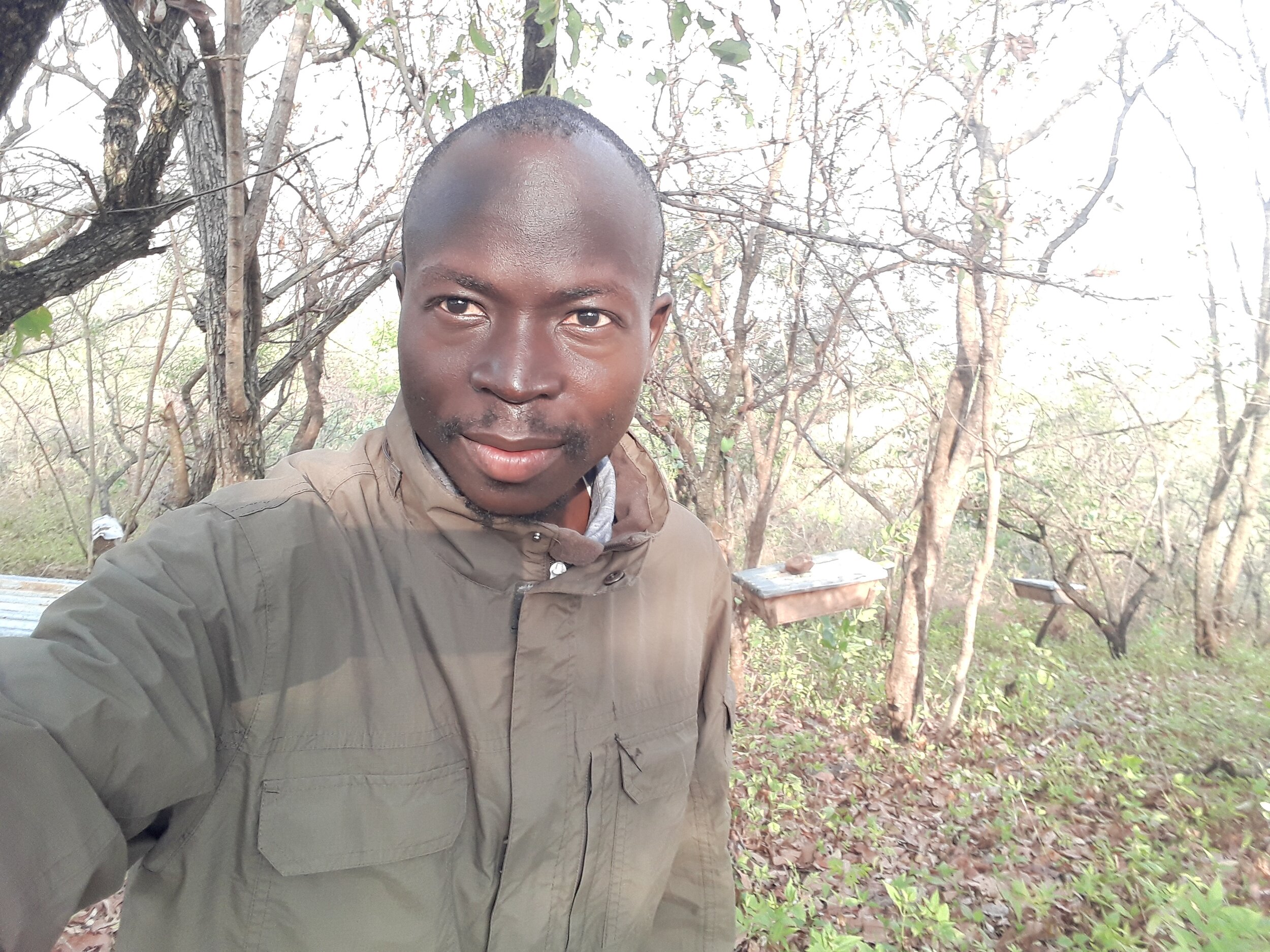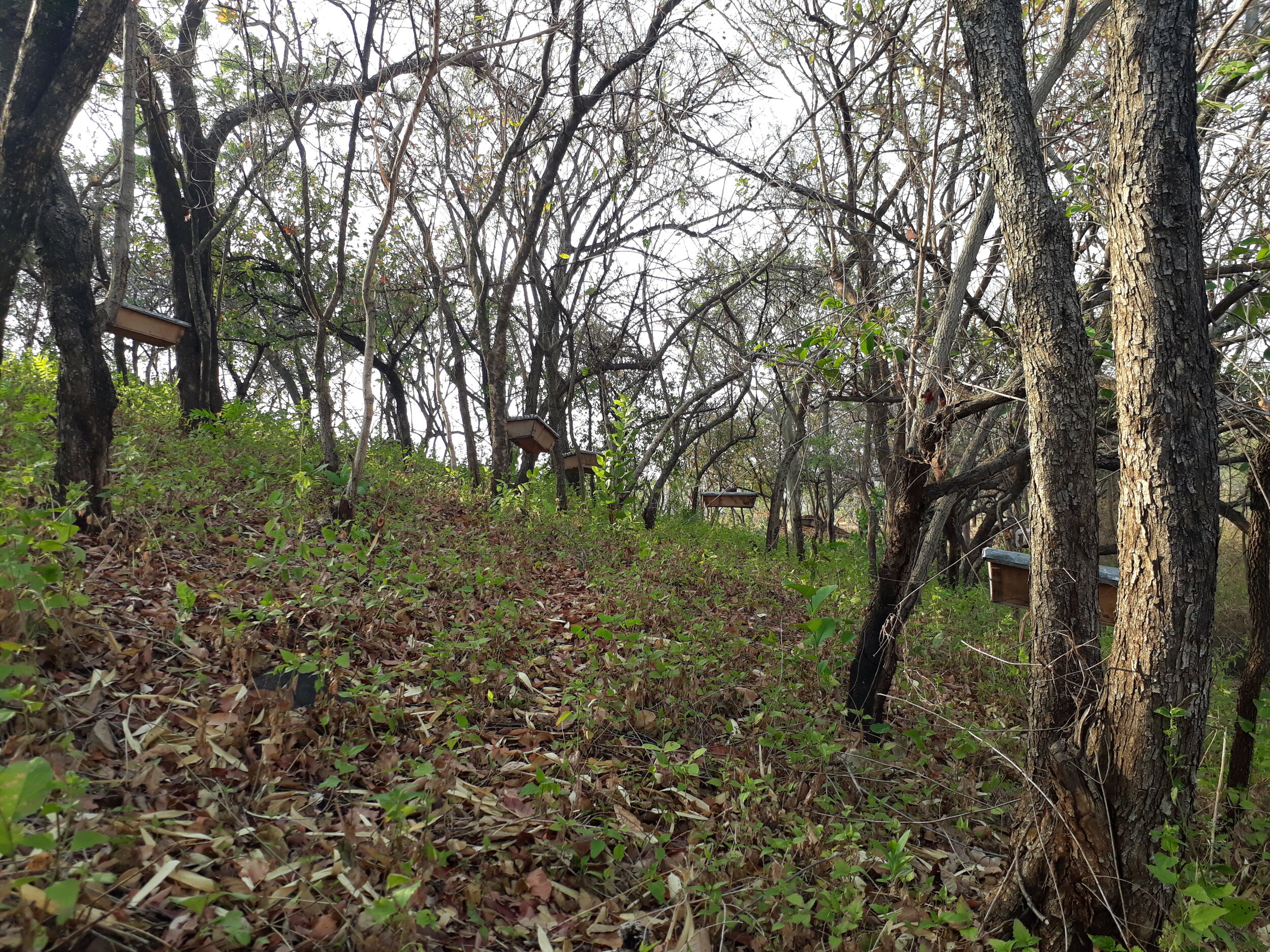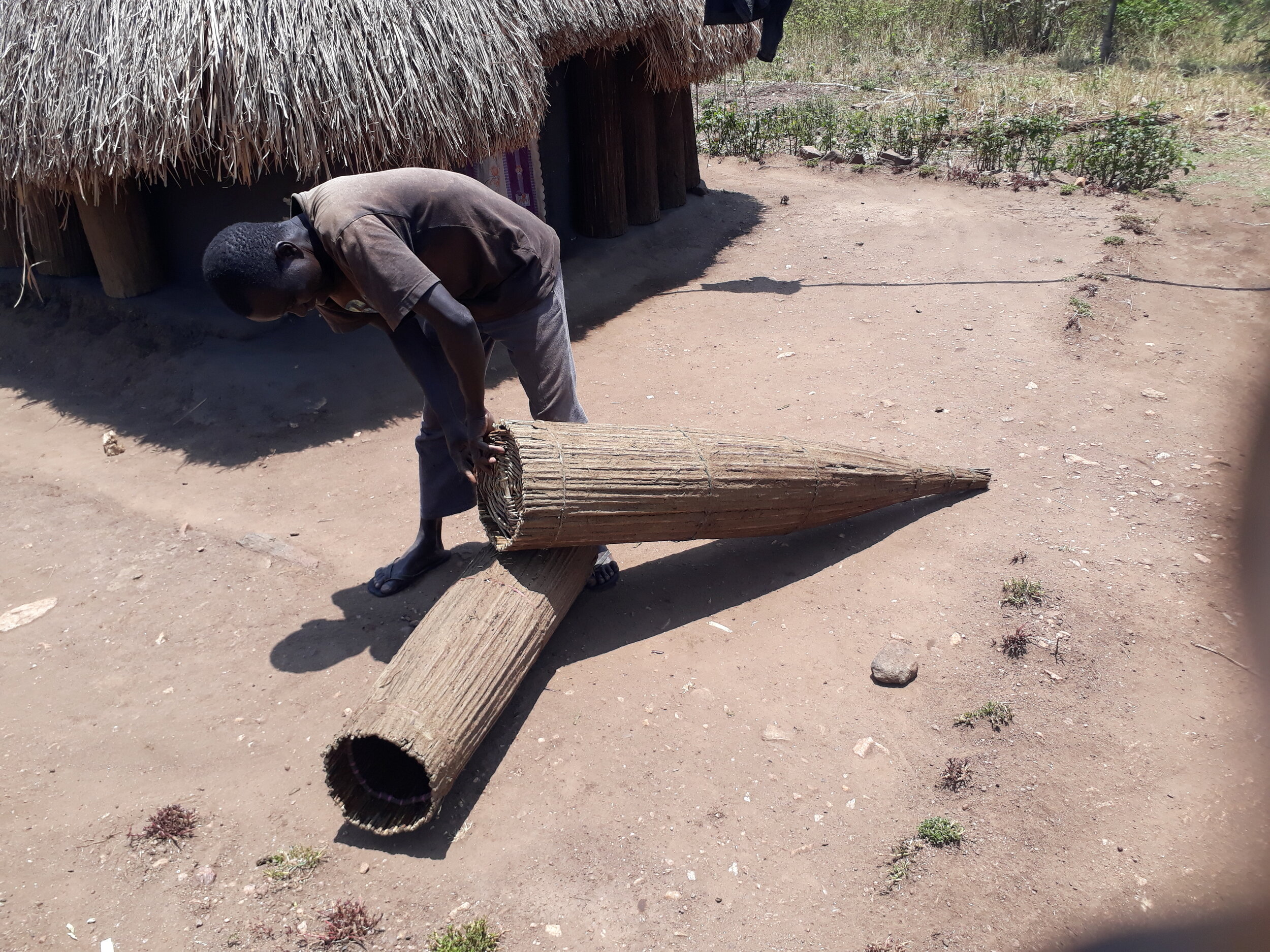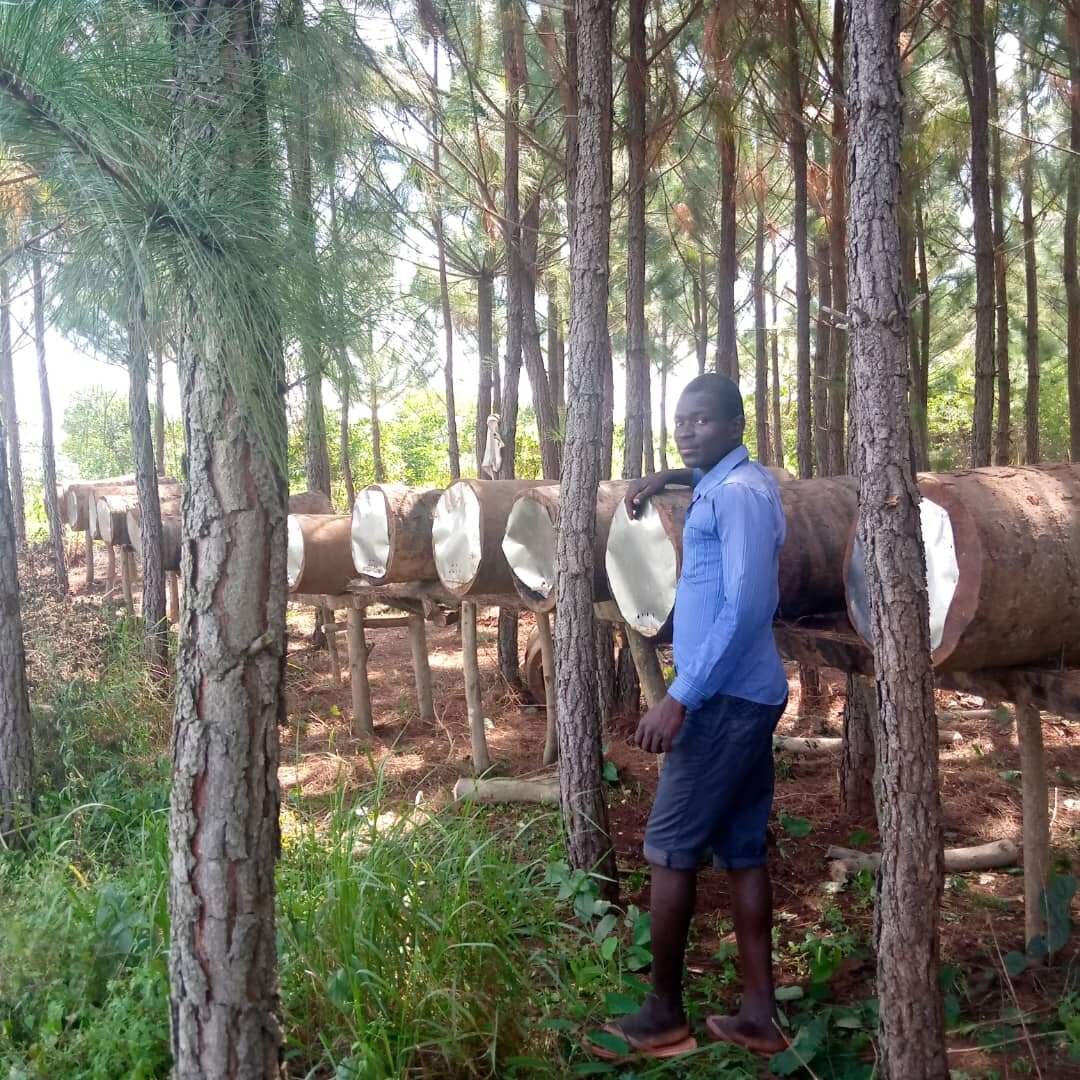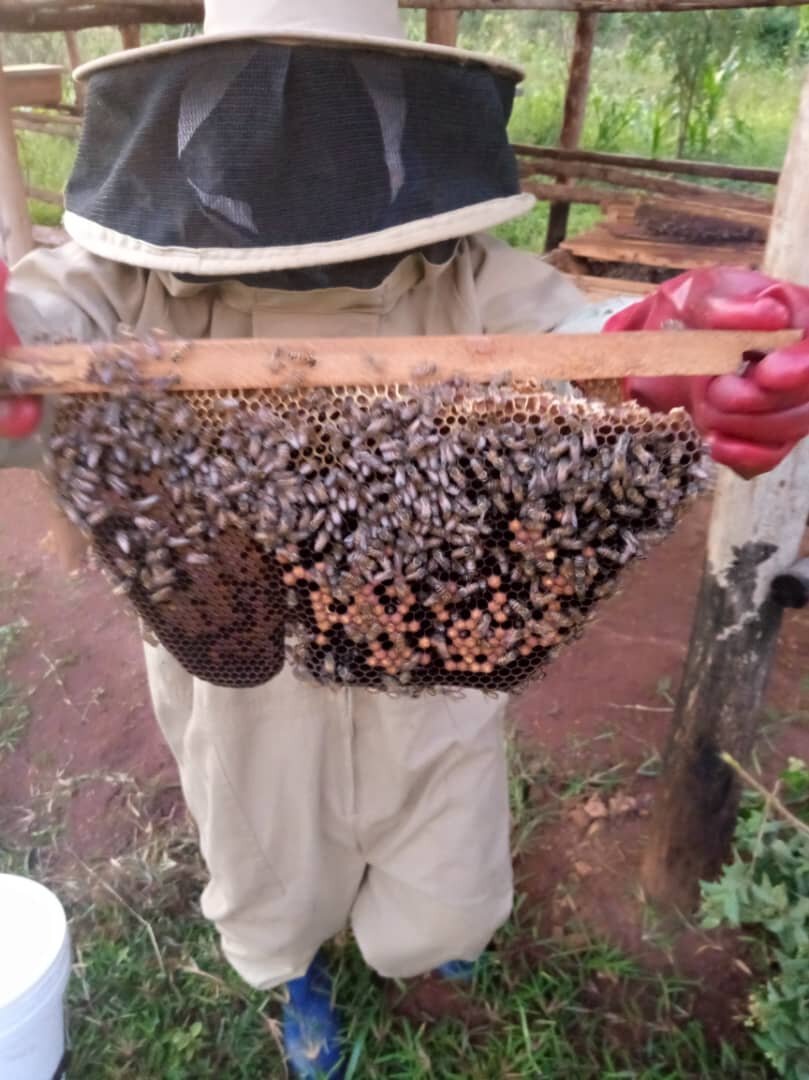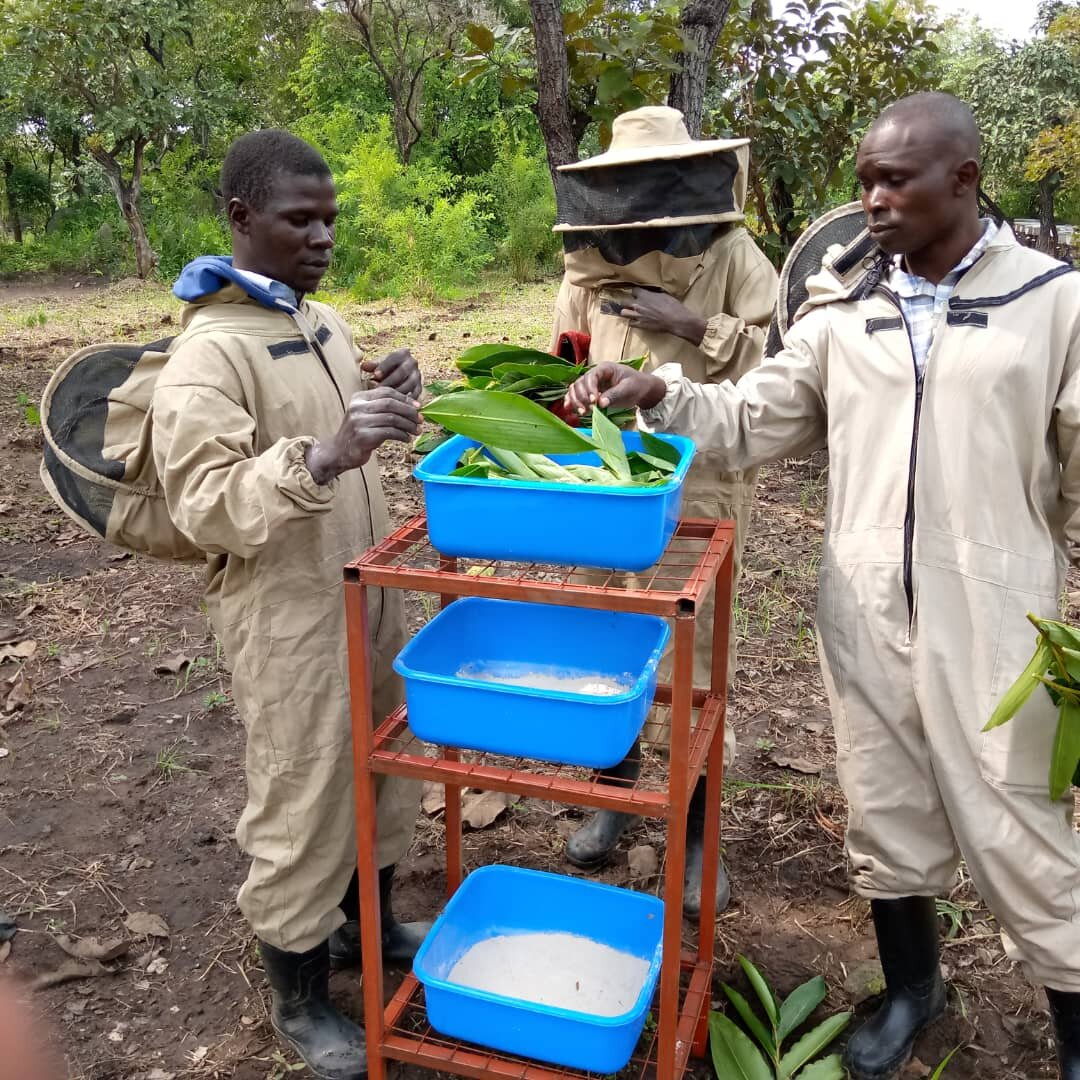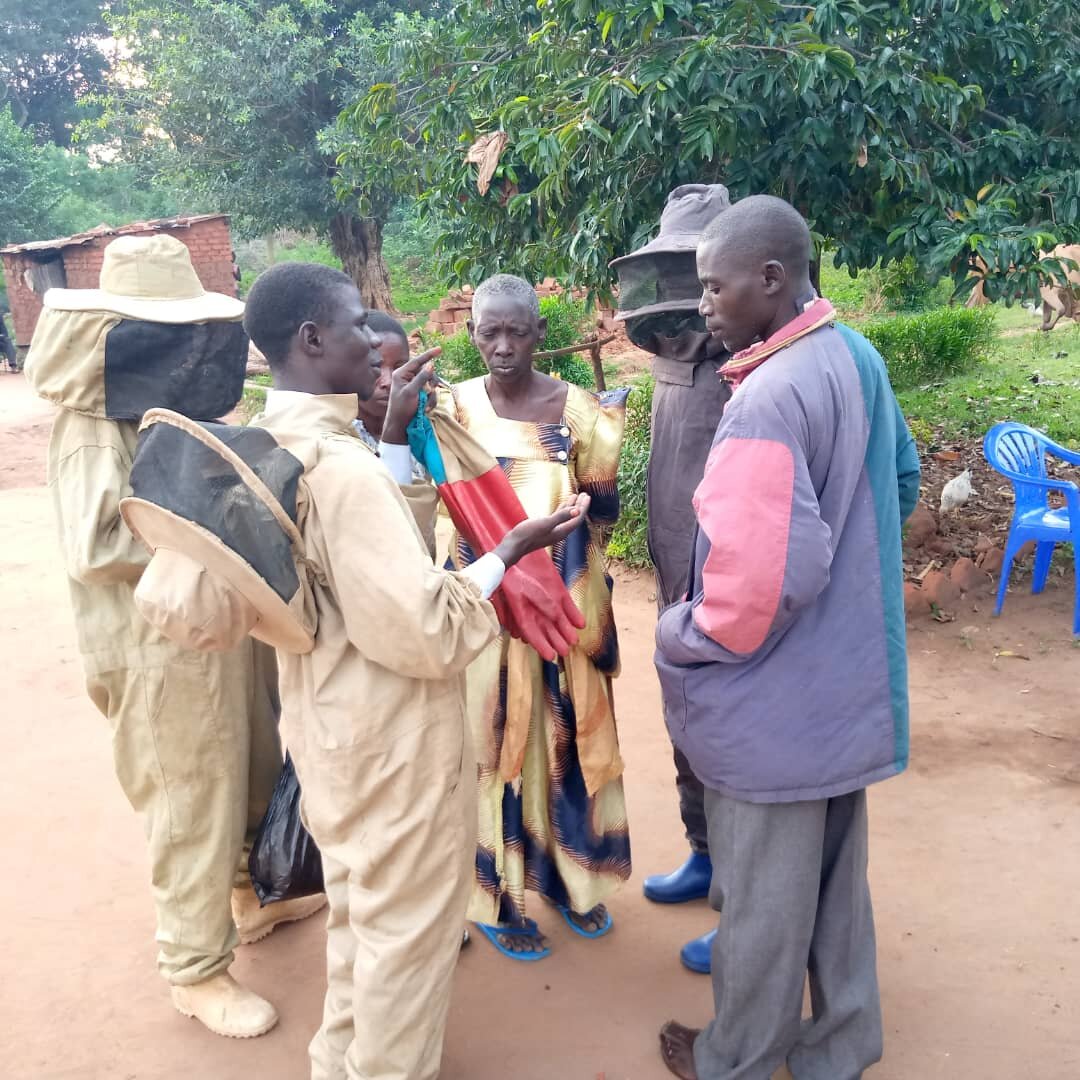Interested in learning more about pollinators? Check out our third and final webinar in our Pollinators for Our Survival series.
THEIR DIVERSITY, THEIR IMPORTANCE & THEIR CONSERVATION
Tiny, bubbly flying creatures - bees are a stellar species. Spending all of their lifetime fending for the rest of biodiversity. They pollinate flowers, thus enabling successful reproduction and continuation of plant life all across the planet. By pollinating, they give these primary producers (plants) in the food chain the opportunity to make food for others. Their simple buzzing and dazzling of flowers gives life on earth so much meaning that without bees, and other pollinators, there would be no life due to food deprivation.
Photo courtesy of Leonard, Y4N Global Ambassador
We commemorate World Bee Day by recognising these, among many other, functions of bees in food systems, community livelihoods and a balance in biodiversity. And in line with this year's theme, Bee Engaged, we highlight some practical actions for bees and pollinators, and things you can do to ensure their conservation, in Africa and the world over.
World Bee Day aims to:
draw the attention of the world’s public and political decision-makers to the importance of protecting bees;
remind us that we depend on bees and other pollinators;
protect bees and other pollinators, which would significantly contribute to solving problems related to the global food supply and eliminate hunger in developing countries; and
halt the further loss of biodiversity and degradation of ecosystems, and thereby contribute to the achievement of the Sustainable Development Goals.
QUICK FACTS: Did you know?
There are almost 20,000 different species of bees in the world. (1)
Bees live in colonies.
In each colony, there are 3 types of bees: the queen bee, the worker bee, and the drone.
The worker bees and the queen bee are all females, but only the queen bee can reproduce.
All drones are male.
Worker bee’s tasks are to clean the hive, collecting pollen and nectar to feed the colony and taking care of the offspring.
The drones only mates with the queen.
The queen’s job is to lay eggs only.
Almost all bees are pollinators, but not all of them make honey.
Their Diversity:
Photo courtesy of Leonard, Y4N Global Ambassador
The African bee Apis Mellifera is Africa’s native bee from Eastern to Southern Africa (2). There are 2755 (3) bee species in sub-Saharan Africa, and around one third of those are in South Africa. The honey bee and the mocca/mopani bee (10 species) are the honey makers in bee species.
African honey bees are limited to hot tropical and warm subtropical habitats with distinct wet and dry seasons (4). A. mellifera scutellata (an aggressive invader) form their colonies in tree hollows, logs, man-made structures, rocks, etc.
Their Conservation:
Jean de Dieu KWIZERA - Multiple benefits of conserving bees in Rwanda - Rwanda
If we protect bees, we are protecting our own survival. Bees and other pollinators are key in enhancing biodiversity through processes of pollination. They are also indicators of ecosystem health - thus they are highly impacted by pollution. The conservation of bees, from the inspiring story of a young apiarist - KWIZERA- in Rwanda, highlights multiple benefits for their survival, diversity and for humanity. Read his testimonial below:
I’m called Jean de Dieu KWIZERA, I'm an apiarist. In June through November 2019 I bought 97 hives to set up my apiary. I could afford to have only 40 bee colonies for forty modern hives. Sadly, twelve colonies escaped, and two died!
Then, I sought advice from nine experienced apiarists - they all have the same pain of: bees escaping, transfer of diseases, limited supply of bees, etc. Asking some staff from the Rwanda Agriculture Board (RAB), I found that this challenge is general to all beekeepers in Rwanda….
And then I started to identify these three major problems in beekeeping to lift production of honey:
Low production: In Rwanda, the current demand of honey for the export market is 17,000 tons per year, but our supply is only 25% of the total demand (RAB Report 2020).
Small mindset towards beekeeping: 70% of Beekeepers in Rwanda use traditional hives thus, the gap between farmers and apiarists.
Spray of chemical pesticides massively killing bee colonies, thus bees −our major pollinators− population were disappearing and leading to lower agriculture production.
KWIZERA’s solution to the challenges;
To overcome these challenges, here’s what I’m doing with BeeGulf Limited.
I established BeeGulf Ltd as an inclusive platform for establishing modern touristic apiaries wherein youth’s educational tours are done and help them join ventures to use national forests as new apiarists.
Our serial educational dialogues (in the field and on social media) are about mobilizing farmers to farm organically to contribute to agroecology and biodiversity and, at the same time, making a fortune with beekeeping.
BeeGulf Ltd establishes touristic apiaries to achieve biodiversity and agroecology goals through apiculture by doing the following activities:
Bee colony multiplication: to increase the number of bee populations, we do queen raising and set up new model apiaries. So far we have set up three apiaries of 370 hives: Kigali- Gasabo-Jali, Kigali-Kicukiro and Rulindo district, each site with 70 modern beehives and 40 traditional hives.
Promoting positive perceptions of bee vis-à-vis Agroecology; How to do agriculture without compromising the life of bees.
Photos courtesy of Kwizera
Jabero morris
Nothing lights up my world like my moments with the bees. It gives me the kind of joy and excitement you get when you meet a long lost relation. Learning about the events that surround the life of these remarkable creatures and how useful they are to our existence keeps me yearning for more. For my community members back home in Paidha-Sub County, the bees have become a center of hope and community building. Our work with Kwanzaa Eco Farm Initiative has improved the livelihoods of many families through beekeeping.
Mark Ojungu - story on beekeeping - Uganda
Mark Ojungu is a recent graduate with a Bachelor’s Degree in Animal Production Technology and Management from Makerere University, Uganda. He is enthusiastic about bees and their value chains, and is the founder of RHINO-MAC Agro Bees Ltd, an enterprise focusing on the bee value chains within Northern Uganda. Mark is a specialist in apiculture, providing technical training and consultancy services to local farmers within the region. He also trains and teaches local farmers and beekeepers with basic skills and best practices to use for construction and maintenance of hives, bee keeping units and quality bee products.
According to Mark, besides significantly contributing to food security and the agricultural value chain, beekeeping is one of the avenues that could be explored in the fight against unemployment for youth. Mark identifies beekeeping as a pro-poor technology with low cost start up and maintenance; and additionally, it is a sustainable and an environmentally friendly venture.
“Upon completion, the big question that always remains difficult to answer by most graduates is: “what next?”. Most graduates always feel irritated when asked questions like “where are you now?” simply because they’re unemployed. Beekeeping has answered the question for me; I have always thought about being an employer not an employee, something I believe every youth can achieve having put the skills acquired from school or training into practice”
Having started off selling different bee products, Mark realized that most companies dealing in bee products were less mindful of the quality of the bee products, a challenge that triggered him into training on beekeeping skills and good practices to keep in mind whilst ensuring a healthy value chain of bees and their products among local beekeepers.
Mark looks forward to growing his venture with beekeeping, building his career and technical skills in apiculture and healthy beekeeping practices. He believes that bees are the most significant pollinators contributing greatest to the food systems and entire agricultural value chain. Protecting the environment would mean protecting the bees too; thus enhancing agricultural productivity and food security. Through his venture, he has been able to supply bee products and several 50KTB bee hives around the country!
“No bees, no food, no life; let us be conscious of our environment to protect our pollinators’ habitats so we may also live.”
Photos courtesy of Mark
Call to Action
Human-induced climate change and destructive human activities on nature are driving species to extinction. Pollinators are our survival heroes, but their protection and conservation must be put at the centre of restoration. The many associated benefits of conserving bees and other pollinators should be encouraged in order to boost their populations, while sustainably giving livelihood options to communities. Agroforestry, regenerative farming, protecting indigenous and natural forests, restoring the right tree species in their diversity and in the right ecosystems, rearing bees, eliminating toxic chemicals on our farms, are among the initiatives we can take to support pollinators.
HAPPY WORLD BEE DAY! Make everyday about pollinators.
This blog was written and submitted by Kaluki Paul Mutuku, Y4N Regional Director for Africa, with contributions from Global Ambassadors Leonard Iyamuremye and Aiita Joshua Apamaku.

